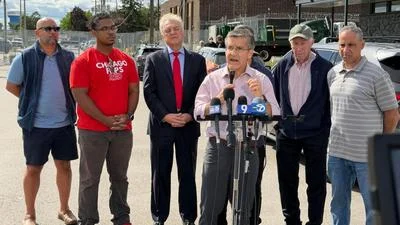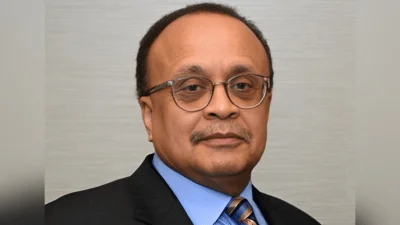Illinois Governor's Office issued the following announcement on Jan. 27.
Building on the state's commitment to address the opioid crisis, Governor Pritzker today signed Executive Order 2020-02 to better address racial disparities in responding to the opioid crisis by establishing the Governor's Opioid Overdose Prevention and Recovery Steering Committee. Illinois is also dedicating $4.1 million state dollars to expand recovery and prevention services for individuals with opioid use disorder in all corners of the state.
This year, Illinois saw the first decrease in five years in opioid overdose deaths. Despite this decrease, opioid overdose deaths among white residents in Illinois decreased 7% in 2018 while deaths among African Americans increased 9.1% and deaths among Latinos increased by 4.3%.
"This executive order begins an effort to achieve social equity as we work to end the opioid crisis in Illinois," said Governor JB Pritzker. "We will coordinate innovative, evidence-based approaches in partnership with harm-reduction organizations, establish local systems of care in disproportionately impacted communities, and create a comprehensive statewide opioid plan. I'm equally proud to announce that my administration is increasing our state investment in this fight by over $4 million in this fiscal year. Illinois has made great strides in responding to the opioid crisis that has swept the nation,but our work won't be done until all our residents have the opportunity to live their most fulfilling lives."
The Governor's Office in conjunction with the state's Opioid Crisis Response Advisory Council will create an Opioid Social Equity Committee to make policy recommendations regarding how to address social and racial disparities in the opioid crisis response. They will also establish local recovery-oriented systems of care councils in communities that have been disproportionately impacted by the crisis in order to reach out to and engage individuals in all stages of recovery.
The Executive Order also focuses on harm reduction strategies that promote safer use of opioids to save lives. These strategies will help reduce both the risks of infectious HIV, HCV and Hepatitis A and fatal overdoses. This includes supervised consumption sites, where individuals with opioid use disorder are under the supervision of trained staff with the goal of ensuring the safety of both the individual and the general public.
Last year Governor Pritzker signed the Overdose Prevention and Harm Reduction Act (PA101-0356), which also focuses on harm reduction and allows for the establishment and operation of a needle and hypodermic syringe access program or syringe services programs to help prevent the spread of infection and disease. An additional $500,000 will be invested in the syringe services programs.
Saving lives through safer use is an important component of the state's overall strategy, but the ultimate goal is to connect people with the treatment they need to fully recover. The administration will invest $550,000 to encourage doctors to prescribe medication assisted treatment (MAT) for individuals with opioid use disorder. Another $2.75 million will be invested in overdose prevention. This includes investments in the Prescription Drug Monitoring Program to ensure that first responders and treatment providers can respond in real time when there is a spike in overdoses in a community. This response will include overdose prevention training, local public awareness messages, and the purchase of 50,000 doses of naloxone to put directly in the hands of community residents.
To increase transparency and accessibility of resources, the state will also create a comprehensive online repository that streamlines and makes available all opioid use disorder prevention, treatment and recovery resources.
Original source can be found here.





 Alerts Sign-up
Alerts Sign-up